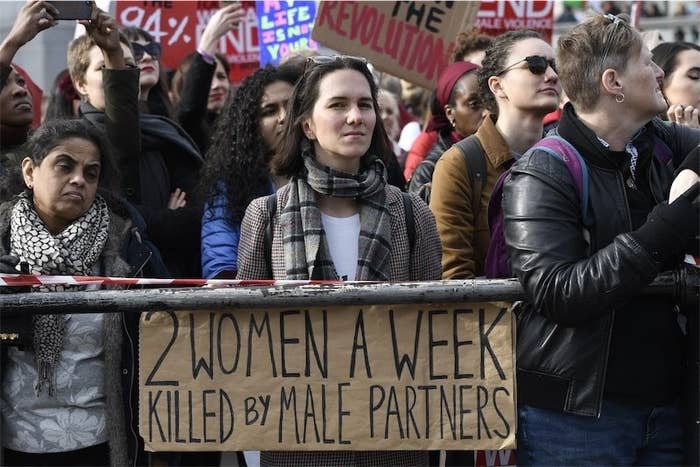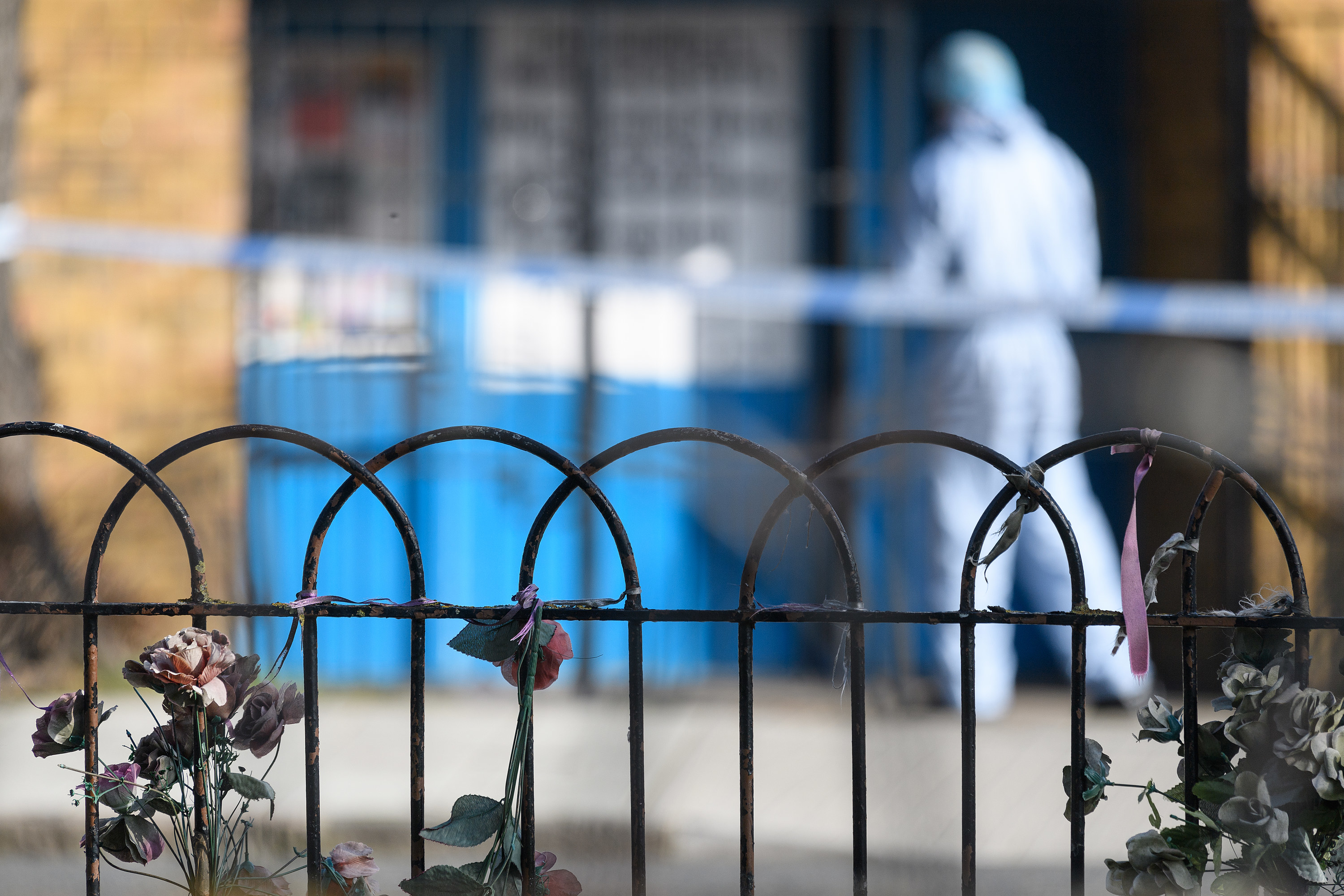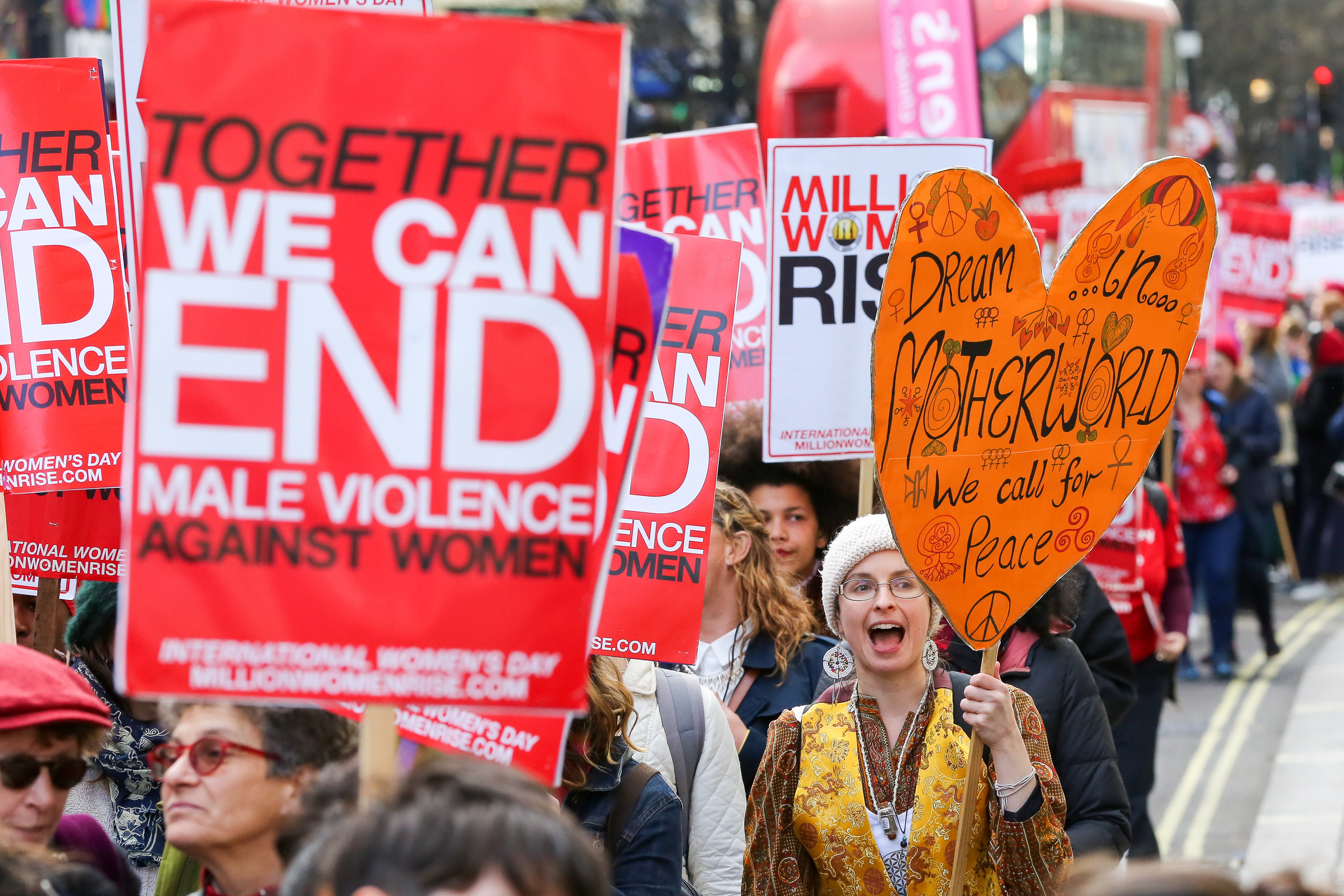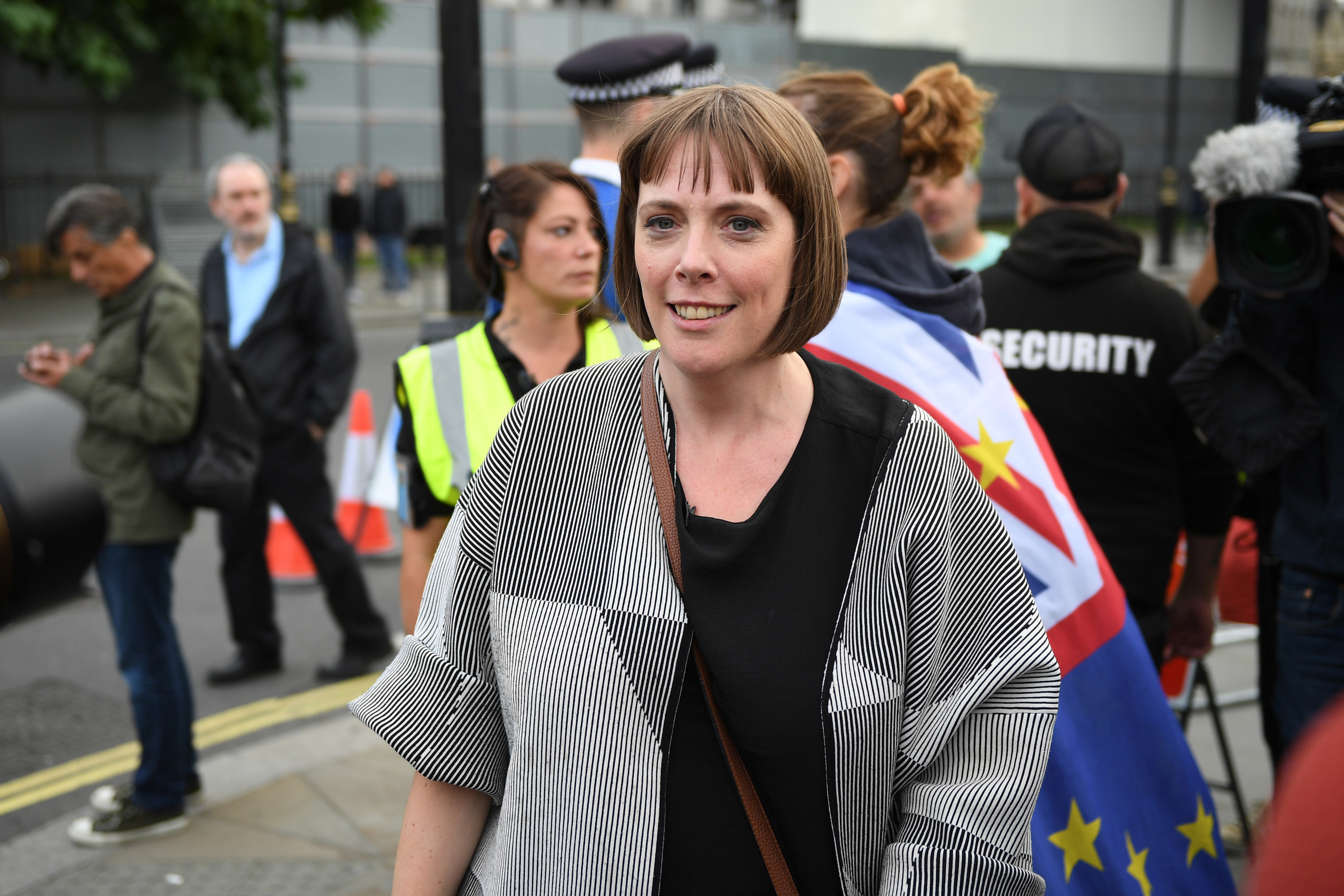
Katie Wilding was just 21 years old when she died alongside her violent partner Mitchell Richardson.
Wilding and Richardson were found side by side, having ingested a fatal combination of morphine and cocaine. The coroner who presided over the inquest into their deaths recorded a narrative verdict, saying the circumstances of how they took the drugs were unclear.
When Wilding died, Richardson — more than 10 years her senior — was awaiting sentencing for beating her and breaking his bail conditions. Other serious charges against him, including holding her hostage and making death threats, had been dropped.
Wilding’s mother, Julie Aunger, said Richardson told her that he could kill her daughter with drugs and that her daughter had told the police that she feared for her life. The family have spent years fighting for a review into her death in the hope of saving other lives.

According to Aunger, he had been arrested twice for assaulting her, and in a two-hour video interview, Wilding had told police how Richardson was controlling her: He had stopped her from working, kept her money, stopped her from seeing friends and family, told her what to wear, and threatened to post intimate videos of her online.
A month before her death Wilding had been designated as high risk by a Multi-agency Risk Assessment Conference (MARAC), but, Aunger said, “no one seemed to follow up if they couldn’t get hold of her.”
“Nobody seemed to be taking the threats seriously until she died,” she told BuzzFeed News. “I think it’s a lack of funds and a lack of training. [Laws against] coercive control had been brought in nearly 12 months before Katie died, but our local CID, our local police had no training in that, they didn’t know what to look for.”
“I think it’s money,” she added. “It’s training, a lack of police officers, they’ve got such high workloads, and it’s sad, but I think they just have different priorities.”
Figures released this week by the Office for National Statistics (ONS) show that the number of women and girls killed in England and Wales in the year to March 2019 has reached a 14-year high. After a period of several years in which the number of deaths gradually began to decrease, the total of 241 female victims of murder, manslaughter, or infanticide marked an increase of 10% on the previous year. Almost half the women who died were killed in a domestic homicide.
Legal professionals, MPs, police, and families of victims of domestic abuse have told BuzzFeed News they believe the sharp spike — the second increase in consecutive years — is the result of years of austerity beginning to bite.
Aunger said her whole family has been left devastated by her daughter’s death. Both she and her husband have given up their careers, their mental health has suffered, and like her, her other three children have been left “broken” and “are all going through it in their own ways.”
She believes that Wilding’s death could have been prevented if better services were in place to support victims of domestic abuse.

“We need to have more services available,” she said, adding that the government should “absolutely” make tackling domestic violence a priority.
“All these wonderful speeches and things they’re putting together... they have to back this up with actual actions, not just words and policies.”
The professionals BuzzFeed News spoke to cited a wide range of different spending cuts they felt had impacted on the number of killings, from a loss of refuge beds to a lack of funding for specialist police teams to benefit changes leading to greater tensions in relationships.
Last year, the then-chancellor Sajid Javid declared the age of austerity “over” – although the Institute for Fiscal Studies was quick to point out that spending in many public service areas would remain below pre-2010 levels.
Adina Claire, acting co-CEO of Women’s Aid, said she was “deeply concerned, but sadly unsurprised,” that the figure had reached a 14-year high.
The charity’s annual report, which gives an overview of the domestic abuse support services available in England, found that more than 23,000 refuge referrals were declined in 2018–19; 64.1% of the total number.
“As our latest Annual Audit revealed, nearly two-thirds of refuge referrals are declined, and many life-saving domestic abuse services across the country are running an area of work with no dedicated funding whatsoever,” Claire said.
“The stark reality is that, in the absence of sustainable government funding, domestic abuse services are having to turn women and children away. These women and children are then met with the impossible choice of returning to their abuser or facing homelessness.”
She added: “The domestic abuse sector remains woefully underfunded. Our research shows that just £393 million per year would deliver the services women and children need. Without this urgently needed funding, we fear the number of women killed by men will remain high or even increase.”
Her words were echoed by Suzanne Jacob, chief executive of charity Safe Lives, who told BuzzFeed News: “These figures demonstrate that, despite an increase in awareness about domestic abuse, there is still so much work to be done to improve the response.”
She went on: “We need to see fully funded, comprehensive support for victims of domestic abuse — including intervening much earlier to prevent serious harm.
“We also need to think seriously about how we respond to perpetrators; many domestic homicide reviews reveal that the perpetrator had abused more than one victim.”
Domestic abuse victims are also being failed by police following funding cuts that have seen specialist teams amalgamated into other units, those who spoke to BuzzFeed News said.
“The police response to domestic abuse remains a postcode lottery,” Claire said. “While forces are investing in domestic abuse training, the use of powers to arrest and charge perpetrators remains highly inconsistent. There remain major challenges with resources, the length of investigations and lack of specialist support which bar survivors from accessing justice.”
Graham Wettone, a retired Met Police sergeant and the author of How to Be a Police Officer, said that forces often “can’t cope with the demand”, and units are often staffed with “no specialist officers as such, just a lot of trainee detective constables out of their depth.”

He said suspects are increasingly being released under investigation (RUI) because an overstretched criminal justice system cannot deal with cases immediately — dragging out the length of time that investigations take, and leaving perpetrators free to contact their victims and potentially offend again.
Wettone listed the factors that he believes are behind the increased murder rate: “The changes to the bail act pushed through by [Theresa] May meant more suspects were released under investigation with no bail conditions, coupled with cuts to refuges, plus loss of experienced officers and reduction in numbers working in domestic abuse investigation units, meaning detectives carry an increased workload so that lengthens the time in some cases [for] the investigation to be completed.”
The Secret Barrister, a lawyer and author, told BuzzFeed News they agreed that releasing suspects under investigation could be one factor leading to an increase in deaths.
“The failure of the criminal justice system to deal with domestic violence means that high-risk offenders remain RUI for months, if not years, without adequate protections in place,” they said.
“There is then a delay of another year or so if a crown court trial is required, during which time offenders are not getting the intervention they need to reduce their risk.”
An overstretched prison system and probation service also mean that even once offenders are convicted, they are either not getting the rehabilitation support they need, or not being dealt with appropriately due to a lack of capacity.
One probation officer told BuzzFeed News that domestic violence offences are not always treated with sufficient gravity. “It's not uncommon for breach of protective orders [involving] non-mol[estation] and restraining orders to be dismissed by the CPS or for the sentence to be very lenient,” they said, “despite what we know about persistent breach of controls and failure to let go, and loss of relationship and link to domestic homicide.”
Jonathan Black, a criminal defence specialist and a partner at BSB Solicitors, said that not only were public services not able to support victims and deal with offenders in the after-event, but that austerity measures were also leading to more incidents of domestic abuse in the first place.
“Social decline, poverty, there’s always going to be an increase in domestic violence as a result of economic tension,” he said, adding that this had been evident in cases that he had dealt with.
“I do think poverty, deprivation, benefit cuts you see are having an effect on domestic situations, I do think that is a major factor, in my view, you see the tensions building up in domestic situations,” he added.
Heather Harvey, research and development manager for the charity Nia, which campaigns to end violence against women and children, also said the reasons behind the rise were multifaceted, but that austerity lay behind many of them.

She told BuzzFeed News: “Cuts mean reduction in public services — police, probation, CPS, etc., and that increases behaviours which minimise, delay, deprioritise, look to outsource or find cheaper ways to deliver.”
Loss of funding can impact provision in myriad ways, she said, including a smaller and less-experienced staff, a move to more online provision instead of face-to-face, and loss of specialist services, for example for BME women.
Like Black, Harvey said that austerity itself also drove an increase in violence in relationships in the first place.
“We know that where there are additional stressors in a relationship — mental health, financial stress, risk to home, risk to family, risk to relationship, risks to health, risks in reliance on drug or alcohol as a coping strategy this can increase risk of violence particularly of male violence to women,” she said. “ All these additional stressors come into play when finances and personal security are threatened and we’ve been living in extremely precarious financial times for many families for a long time.”
“I’m afraid to say it was inevitable,” Jess Phillips, a Labour MP and one of the leading campaigners on domestic abuse issues in Parliament, told BuzzFeed News.
“Changes to the welfare state have left people poorer, it’s more difficult to escape. When you cut the councils’ [funding] you’re cutting refuge beds, children’s social care…and on top of that, there’s the changes to the criminal justice system. We’ve seen a reduction in police and a massive increase in perpetrators released under investigation without charge, and basically perpetrators are able to act with impunity.”
Phillips told BuzzFeed News that the latest statistics should be a wakeup call for the government, and urged ministers to act as decisively as they had in announcing new terror sentencing laws in the wake of a recent attack in south London.
“We need the government to act on these stats and to feel the same level of compulsion they felt this week,” she said. “It shouldn’t be about political expediency, it should be about safety in this country.

“They’ve shown that they can act incredibly quickly when they want to protect the country, so why after every murder of a woman or child in the country do we not get the same response?”
The domestic abuse bill, originally brought forward by Theresa May’s government, promises a raft of measures aimed at tackling these crimes, but while Boris Johnson has promised to proceed with the legislation, its progress has stalled.
In a statement, Kit Malthouse, minister for Crime, Policing, and the Fire Service, said: “We are taking action to make our streets safer and protect people from violence in their homes.
“We are recruiting 20,000 new police officers, giving them more powers to take dangerous weapons off our streets and ensuring serious violent and sexual offenders spend longer behind bars.
“But these figures are a stark reminder of the devastating impact of domestic abuse and our domestic abuse bill will establish greater protections for victims and ensure perpetrators feel the full weight of the law.”
However, a Home Office spokesperson was not able to confirm when the bill would next come before Parliament.
Meanwhile, Aunger and her family continue to fight for answers, and for changes to the system “to help save other vulnerable 'Katies’.”
“I’m broken, I don’t think I’ll ever be the same again,” she said. “I just don’t want another family to have to go through what we’ve been through. I can’t describe to you the pain.
“It’s wrong. There are things we can and should be doing to prevent it.”
